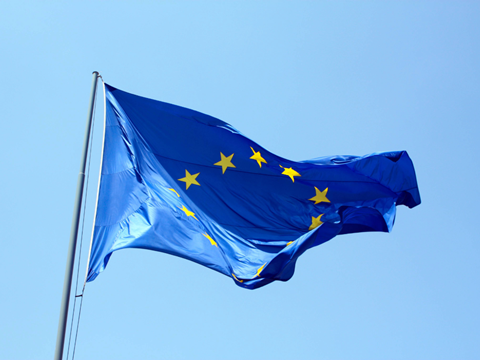
European Plastics Converters (EuPC), Plastics Europe, and Petcore Europe urge the European Commission to maintain its €0.80/kg levy for non-recycled plastic packaging and earmark the proceeds to fund a circular economy for the plastics sector.
In a proposal presented to the European Council, the Commission suggests that inflation has decreased the real value of the €0.80/kg resource, a levy first introduced to help offset the impact of Brexit on the EU budget.
Apparently, this system generated a revenue of €7.2 billion from the plastic-based own resource. So far, Spain is said to be the only company to enforce a €0.45/kg plastic tax on non-reusable packaging, calculated using the weight of non-recycled plastic in the packaging.
Yet the proposal argues that the levy now risks disincentivizing Member States from pursuing EU recycling targets. In response, it suggests raising the call rate to €1/kg in 2028.
“The call rate for the own resource based on non-recycled plastic packaging waste, which was introduced at the start of the current MFF, was set at a fixed amount of EUR 0,8/kg,” the proposal explains. “However, inflation has significantly reduced the real value of the revenue from this own resource.
“To correct for this, it is proposed to increase the call rate to a new level of EUR 1/kg in 2028 and, from that point onward, to adjust it annually to inflation.
“To ensure a transparent own resources system, there will be no adjustments to own resources. Thus, the capping of the VAT base, as well as the lump sum reductions applied to the non-recycled plastic packaging waste own resource and the GNI own resource will be discontinued.”
The adjustment would mark a 25% increase in the levy Member States must pay for every kilogram of non-recycled plastic packaging waste.
EuPC, Plastics Europe, and Petcore disagree with the proposal. In their view, Member States are not adequately prepared to implement the Own Resource mechanism linked to non-recycled plastic packaging waste; they cite a report previously published by the European Court of Auditors as evidence for this stance.
“Increasing the fee at this stage may not lead to environmental improvements, but rather discourage investments in the necessary infrastructures and prompt Member States to seek alternative financing solutions that do not necessarily support waste reduction efforts,” reads their joint press release.
“The plastics levy is intended to encourage progress towards sustainability in Europe, but its contribution depends on effective implementation and on how potential impacts on competitiveness, material substitution, and enforcement are addressed in order to avoid fraud on products, raw materials, and recyclates imported into the EU.
“Thus, the levy should not be treated as a convenient revenue stream for alternative priorities of the Commission but as a dedicated tool to accelerate the transition to a more sustainable and resource-efficient Europe.”
The signatories say that the levy should contribute to a dedicated fund helping Europe’s plastics industry transition into a circular economy – a particularly helpful move as the sector struggles under the weight of high energy prices, labour and environmental compliance costs, de-industrialization across the EU, and continent-wide plant closures.
In the companies’ view, this setup would encourage industry players to invest in sustainability-minded solutions within Europe. It may also help safeguard the industry’s competitiveness and prevent further burdens under an already uncertain trade framework.
“The plastics value chain is focusing its efforts towards the circular transition, supported by pivotal pieces of legislation such as the Packaging and Packaging Waste Regulation (PPWR), which stipulates mandatory recycled content quotas of between 10% and 35% for all plastic packaging from 2030 onwards,” the statement continues. “In addition, all packaging must be recyclable.
“In this context, the EU levy and national taxes no longer have a positive steering effect, especially since the revenues feed into the general (EU or Member State) budget and are not used to foster the circular economy.
“Other pivotal pieces of legislation, such as the End-of-Life Vehicles (ELV) Regulation, the Waste Framework Directive (WFD), and the Eco-design for Sustainable Products Regulation (ESPR), all convey a strong message: The plastics industry needs to transition towards circularity, and this transition needs coordinated, long-term financing assistance.
“We therefore call on the European Commission to keep the 0.80 cent/kg in the Own Resource package and to earmark the reinvestment of proceeds from the “Plastics Own Resources”, commonly referred to as the EU plastic tax, into a Dedicated Fund aimed at building a more circular economy for plastics, especially for those aspects aimed at ensuring not only effective collection and sorting practices, but also fostering the real integration of plastic recyclates in products.”
An impact assessment of the levy’s impacts is also expected to ensure that any further action is focused on improving circularity for the plastics sector and has an appropriate impact, especially in light of other legislative expectations.
This development comes just after signatories such as Searious Business, Maastricht University, and TOMRA backed a campaign encouraging the EU to address high recyclate costs, plant closures, and other aspects of the plastic recycling industry’s ‘broken economics’. Participants fear that, if nothing is done, there will be no viable recyclers left by the time the Packaging and Packaging Waste Regulation comes into force, leaving industries reliant on virgin plastics and ‘underpriced’ imports.
In other news, the Commission is investigating Abu Dhabi National Oil Company’s acquisition of Covestro amid concerns that foreign subsidies from the UAE could distort the EU’s internal market. A preliminary investigation has suggested that ADNOC and Covestro may be receiving foreign subsidies, including an unlimited guarantee from the UAE and a committed capital increase by ADNOC into Covestro.
If you liked this story, you might also enjoy:
The ultimate guide to the Packaging and Packaging Waste Regulation in 2025
How are the top brands progressing on packaging sustainability?
Everything you need to know about global packaging sustainability regulation in 2025
The key to increasing the use of reusable packaging in supermarkets














No comments yet